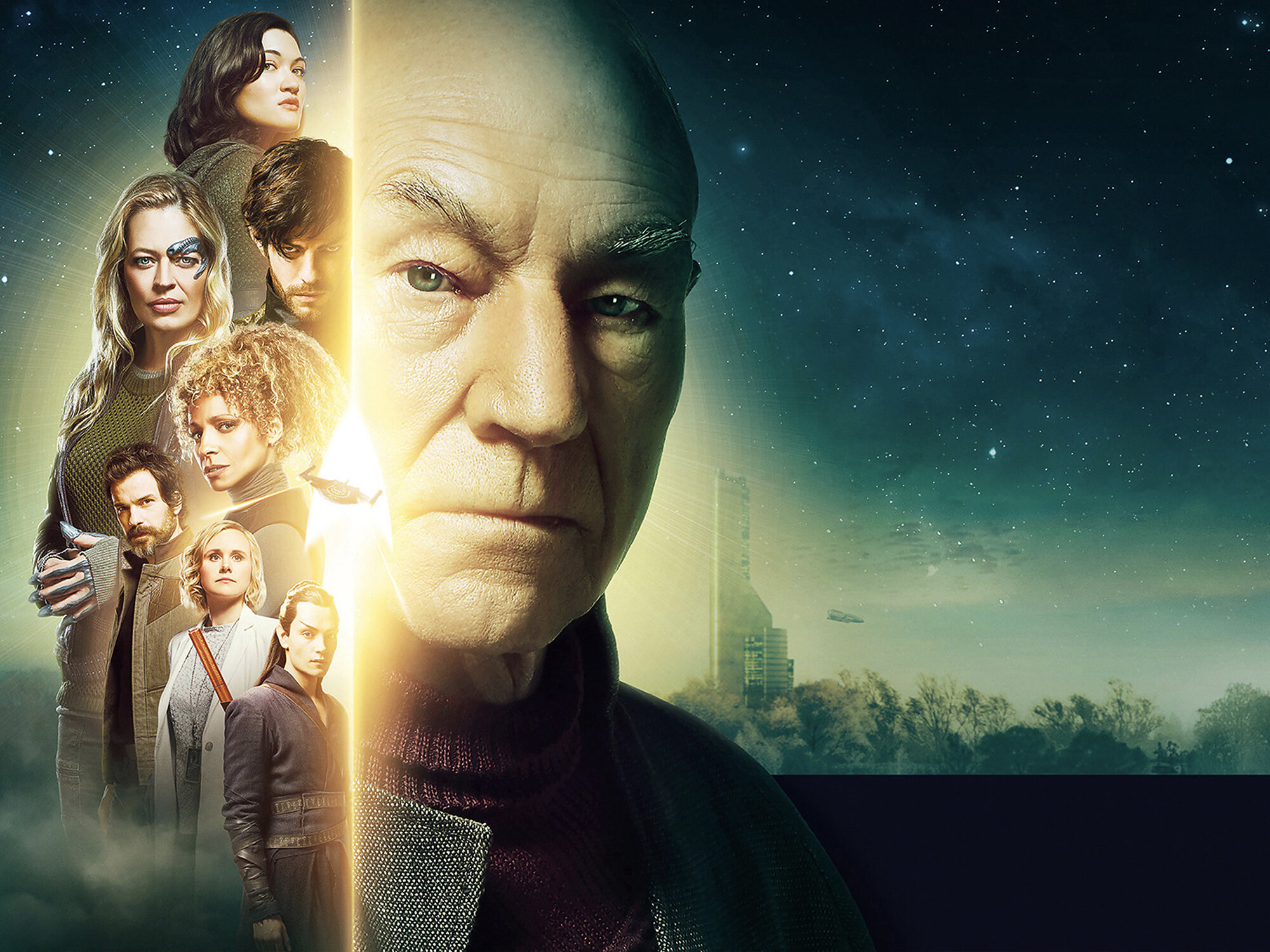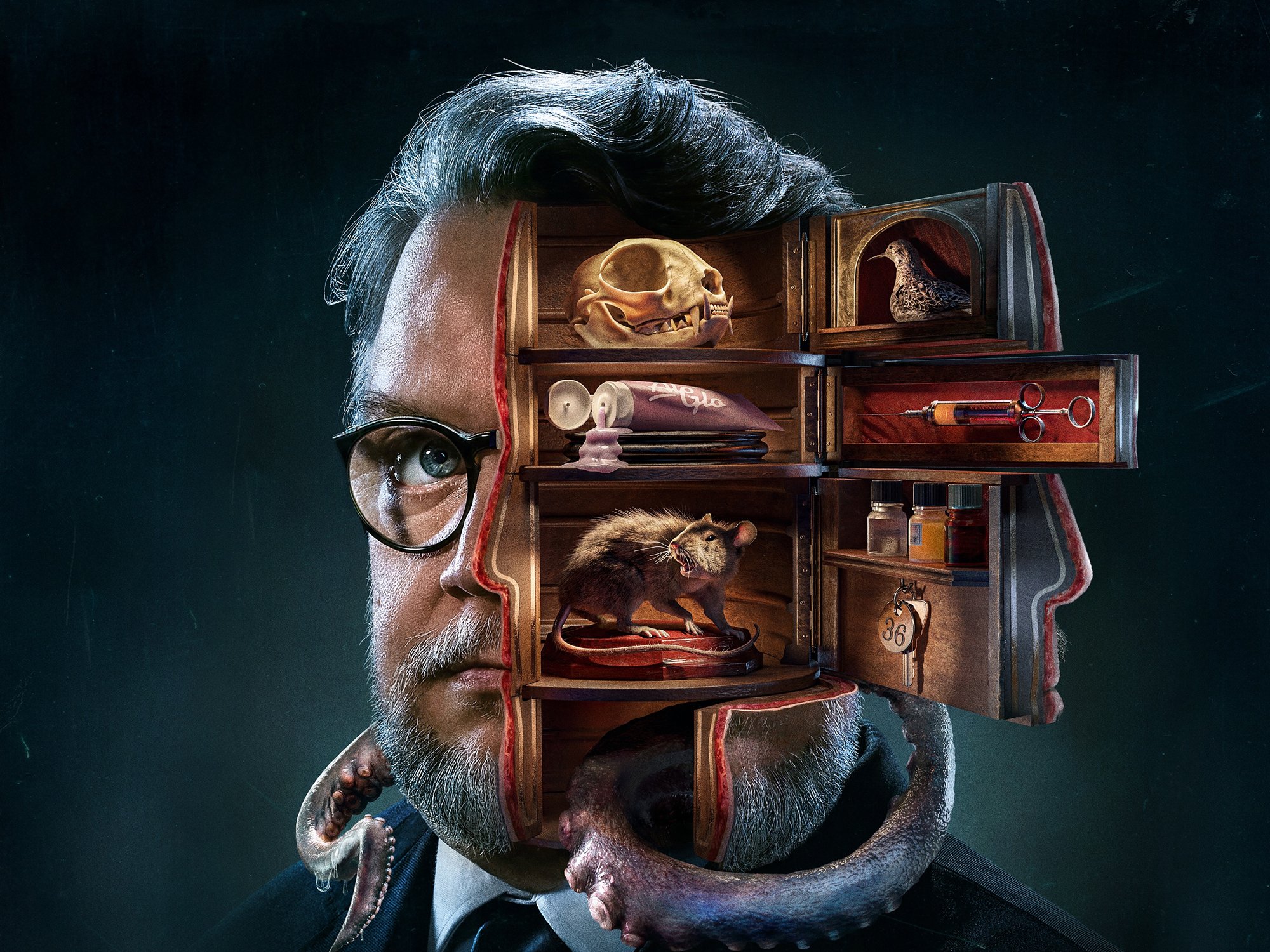TV Review: Star Trek: Picard
Patrick Stewart Makes a Welcome Return to the World of Star Trek
The second Star Trek series to debut on the CBS All Access streaming platform, Star Trek: Picard warmly welcomes Jean-Luc Picard back into the fold of Starfleet politics. Despite a slower start and some lopsided pacing, its episodes are elevated by Patrick Stewart’s gravitas and charisma, making a comeback almost 20 years after the events of Star Trek: Nemesis. Picard pushes farther into the final frontier in interesting ways, even if it takes awhile to get there.
In 2017, under the banner of its All Access streaming platform, CBS launched a new foray into the Star Trek universe: Star Trek: Discovery. Taking place roughly ten years before The Original Series, Discovery was a different kind of Trek right away. Using its narrative as a prequel and following a rogue Starfleet officer rather than the captain of a vessel or space station, the show took some bold risks in its storytelling. Not all of the risks worked. Michael Burnham (Sonequa Martin-Green) - the series’ pragmatic human-raised-by-Vulcans protagonist - was difficult to identify with, and the show’s fast and loose handle on continuity served as a contentious distraction. However, by the time Discovery ended its second season, it had more or less evolved past its growing pains by rounding out its cast with likable supporting characters and by cleverly sidestepping its own continuity traps.
Where Discovery took quite some time to find its footing, CBS All Access’s second venture into the world of Star Trek hits the ground running. The presence of Patrick Stewart, reprising his role as Jean-Luc Picard for the first time since Star Trek: Nemesis in 2002, adds instant gravitas and heft to the show. Like slipping on a pair of old, comfortable shoes, Stewart embodies the charisma and presence of Picard without skipping a beat. After almost two decades away from the character, fans of The Next Generation will take immediate comfort in Picard’s signature intelligence and soulful compassion, even if his station in Starfleet has slipped in another direction.
Within the first few episodes of Picard, someone tells our hero, “This is no longer your house, Jean-Luc.” Picard may still be, at his core, the same man we’ve always known him to be, but the circumstances surrounding the retired Starfleet admiral have shifted drastically. Attempting to further marry the J.J Abrams-helmed “Nutrek” with the Star Trek of yore, Picard fills in the backstory of the eponymous Federation officer since we last saw him: 14 years before the start of the series, Admiral Picard oversees the evacuation of the planet Romulus from an impending supernova (last seen in 2009’s Star Trek), but when a rogue synth attack destroys the rescue vessels, the Federation bans the creation of all synthetic life forms and abandons the Romulan evacuation, and Picard resigns from Starfleet in protest. The start of the series picks up a decade and a half later, with Picard living in idyllic - yet unfulfilling - retirement back in his childhood home of France. However, his peaceful existence is upended when a fugitive android named Dahj (Isa Briones), with deep ties to Picard’s past, ends up on his doorstep. From there, layers of conspiracy (or conspiracies) begin to unravel, involving the highest levels of Starfleet, the Tal Shiar (think of them as the Romulan CIA), and even a deactivated Borg cube.
“Fans of The Next Generation will take immediate comfort in Picard’s signature intelligence and soulful compassion, even if his station in Starfleet has slipped.”
Picard’s pilot works like gangbusters, setting up stakes and tone in a largely thrilling hour of television. Striking a keen balance between the action-oriented science fiction of the new trilogy of films and the heady pensiveness of the older Trek television series, the show settles into a comfortable middle ground. The first episode establishes the lay of the land economically and in exciting fashion, even featuring a genuinely shocking rug-pull that anchors its heavy-stakes narrative. Unfortunately, the same can’t be said for the one or two episodes that follow: languid in their pacing, they spin their wheels for a little too long, and would have clearly benefitted from some consolidation.
Being Jean-Luc Picard’s show, the story functions best when Patrick Stewart is onscreen, allowing his charisma and storied Star Trek past direct the show. Whether he’s grappling with his decades-old guilt, or whether he’s just getting the gang together for his new mission, it’s a genuine pleasure seeing him back in Captain mode, even if the Enterprise isn’t with him. And speaking of the Enterprise, Picard is also wise in relegating familiar faces to cameos and fun surprises - the show wants to be its own thing, and it realizes that a redux of The Next Generation would be a mistake. Data (Brent Spiner), Will Riker (Jonathan Frakes), and even Seven of Nine (Jeri Ryan) make some welcome returns (along with a few more that I won’t spoil here), and I would be lying if I said that seeing these classic characters wasn’t one of the big draws for the series. On the flip side of the coin, however, whenever the focus leaves Picard’s perspective, the narrative ropes slacken. Much of the storyline is split between Picard’s quest and a mysterious plot aboard a reclaimed Borg cube, but once the novelty and wow-factor of seeing the Borg again wear off, there isn’t enough story or substance for the audience to chew on. Focusing on a secretive Romulan operative (Harry Treadaway) and another version of the Dahj android named Soji (also played by Isa Briones), this side-plot - which eventually intersects with Picard’s quest - is too slow to reveal itself, and revels way too much in its own opaqueness.
With Star Trek: Picard, CBS All Access adds another winner to its streaming-only arsenal. Watching Patrick Stewart re-inhabit what is likely his most famous role is a shot of nostalgic joy; whether he’s mingling with old and new faces, grappling with Romulan assassins, or conveying his signature compassionate grit, showrunners Alex Kurtzman, Akiva Goldsman, Michael Chabon, and Kristen Beyer carve a unique space for the eponymous Starfleet hero in a new era of Star Trek. There’s much to love with Picard, even with its lopsided story and pacing issues, and I’m curious to see how it will overcome them and further explore the final frontier.












